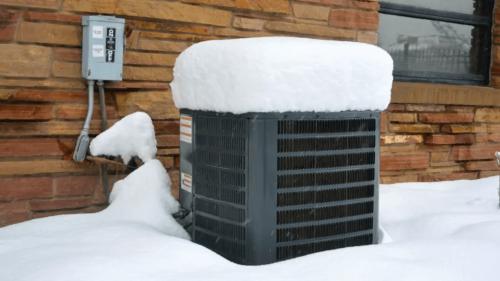Winterizing Your HVAC System: Preparing for Cold Weather

As the crisp air of autumn ushers in, it's time for homeowners to turn their attention to the winter months ahead. One crucial aspect of home maintenance during this season is preparing your HVAC (Heating, Ventilation, and Air Conditioning) system for cold weather challenges.
A properly winterized HVAC system ensures your home stays comfortable and efficient throughout the winter while preventing potential damage. This article will delve into the intricacies of winterizing your HVAC system, offering insights and tips from HVAC professionals with real-world knowledge of these systems.
1. Inspect and Clean the Furnace
Begin your winterization process with a thorough inspection and cleaning of your furnace. Start by turning off the power to the furnace to ensure safety. Remove the access panels and visually inspect the components, looking for any signs of wear, corrosion, or loose connections.
Expert Insight: HVAC professionals recommend cleaning the burners and the heat exchanger. Dirty burners can lead to inefficient combustion, while a dirty heat exchanger can pose a safety hazard. Use a soft brush or a vacuum cleaner to remove dust and debris.
2. Change the Air Filter
A clean air filter is essential for efficiently operating your HVAC system. During the winter months, when the system runs more frequently, replacing the filter regularly is crucial. A clogged filter restricts airflow, reducing your system's efficiency and potentially causing damage over time.
Expert Insight: Choose high-quality air filters with a MERV (Minimum Efficiency Reporting Value) rating suitable for your HVAC system. Consult your system's manual or an HVAC technician for the appropriate MERV rating guidance.
3. Inspect and Clean Air Ducts
Leaky or poorly insulated air ducts can result in heat loss and reduced efficiency. Inspect your ductwork for any visible leaks or loose connections. Additionally, consider having a professional HVAC technician perform a thorough duct cleaning to remove dust, debris, and potential allergens.
Expert Insight: Leaky ducts are a common issue that can significantly impact your HVAC system's performance. Sealing and insulating ducts can improve efficiency and comfort in your home.
4. Check the Thermostat
Your thermostat plays a pivotal role in regulating your home's temperature. Test your thermostat's accuracy by comparing its reading to a separate thermometer. It may be time for calibration or replacement if you notice discrepancies or your AC is freezing.
Expert Insight: Upgrading to a programmable or smart thermostat allows you to schedule temperature adjustments, optimizing comfort and energy savings during the winter.
5. Inspect and Clean Vents and Registers
Blocked or dirty vents and registers can impede airflow, making your HVAC system work harder to maintain your desired temperature. Ensure all vents and registers are open and unobstructed by furniture or drapes.
Expert Insight: Proper airflow is essential for even heating. You can use magnetic covers on unused vents in rooms that aren't frequently occupied to redirect airflow to more critical areas of your home.
6. Check for Drafts and Insulate
Drafts around windows and doors can let in cold air, forcing your HVAC system to work overtime. Seal any gaps or cracks with weatherstripping or caulk. Consider adding insulation to your attic and walls to keep the warm and cold air in.
Expert Insight: Proper insulation helps maintain a comfortable indoor temperature and reduces the load on your HVAC system, leading to energy savings.
7. Schedule Professional Maintenance
While homeowners can tackle many tasks, scheduling professional HVAC maintenance before the winter season arrives is essential. A qualified technician can comprehensively inspect, identify potential issues, and ensure your system operates efficiently.
Expert Insight: Regular professional maintenance can extend the lifespan of your HVAC system and prevent costly breakdowns. It's an investment in both your comfort and your system's longevity.
Wrapping Up
Winterizing your HVAC system is crucial in preparing your home for the cold weather. By following these expert insights and taking proactive measures, you can ensure that your HVAC system operates efficiently, providing you with warmth and comfort throughout the winter while potentially saving on energy costs.
Don't wait until the first frost; start your HVAC winterization process today and enjoy a cozy, energy-efficient home all winter.
Post Your Ad Here
Comments